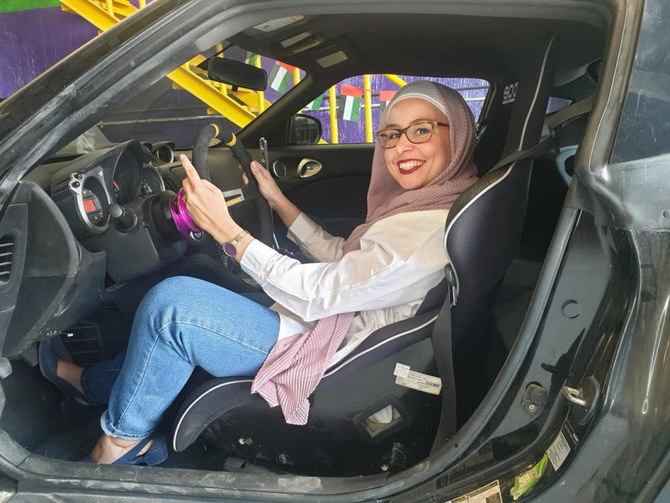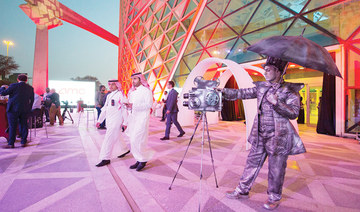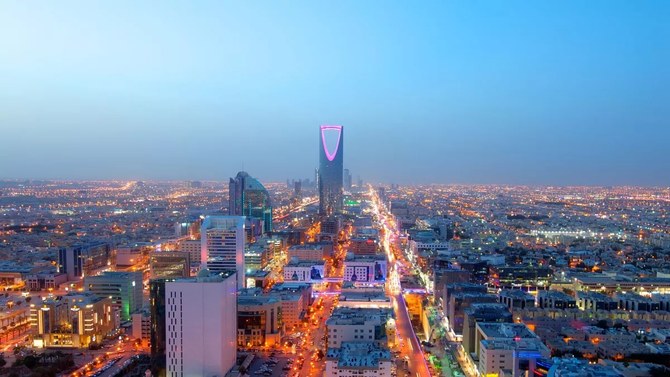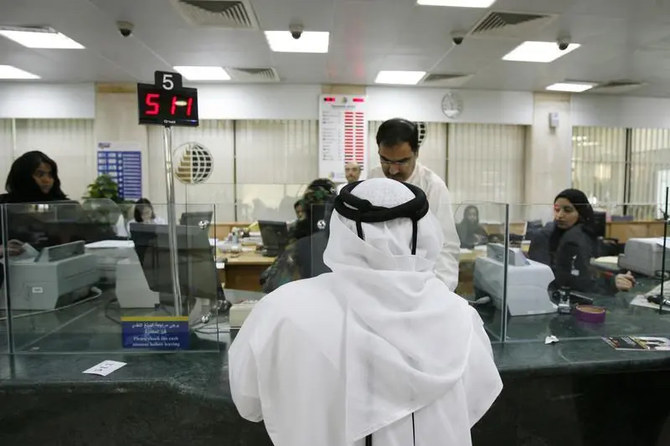DUBAI: Masroor Ahamd was working as a retail store manager in Dubai when the coronavirus disease (COVID-19) pandemic struck last year. Once his employer realized the full economic impact of the situation, he was forced to make the 38-year-old redundant, leaving the business marketing graduate worried about how he would pay his bills. Ahamd decided he had nothing to lose and thought about turning his passion for cooking into a career.
“I used to make biryani when I was 13 years old … We are six boys, no sisters. We used to help our mom make food,” Ahamd, who is originally from Pakistan but was born and raised in Dubai, told Arab News. “We all, the six boys, have special dishes that each one of us excel in … Mine was biryani.”

Masroor Ahamd turned his passion for cooking into a career path. (Supplied)
Using the skills he learnt as part of his education, he promoted the produce on social media and was soon able to turn it into a business, but he is not the only one who has adapted their skillsets to a new business as a result of COVID-19.
Senka Ali, a 36-year-old woman from Bosnia who now lives in Dubai, is another example. Her background is in customer service, but when she lost her job at a large company in Dubai she decided to go and work in her husband’s car repair business.
“It all came by chance,” she told Arab News. “I used to love cars, and I told my husband (to) let us do it together. Basically, he doesn’t have to deal with it all by himself.”
Ali described her new career as “very exciting,” adding she had brought the experience she learned in customer service to the family business.
Research has found that the experiences shown by Ahamd and Ali are not unique, and many residents in the Middle East have switched careers or gone back to retraining as a result of the pandemic.
A global survey in October also found that more than half of respondents said they feared they would be made redundant.
The survey by the World Economic Forum questioned 12,000 adults in 27 countries and while most were worried about their job prospects, two-thirds of workers worldwide said they could learn the skills needed for the jobs of the future through their current employer.
In Saudi Arabia, less than 20 percent of those who took part in the survey said they were worried about redundancy, while 39 percent of Saudis surveyed said they were confident of gaining the necessary skills to compete for new job opportunities in the future.
While some lost their jobs, others have had their hours reduced or their salaries cut. “There are different equations for different people,” said Farzana Kazemi, a human resources consultant and executive coach from the UK.
Some people changed their career paths, others either accepted lower salaries and reduced their lifestyle or started their own businesses. “There are people who lost their jobs and had no choice but to go back home,” she told Arab News.
In June 2020 Oxford Economics estimated that up to 900,000 jobs could be lost in the UAE, leading to thousands of expats leaving. While these figures have yet to be justified or officially recognized, Kazemi said it has undoubtedly been a tough year for jobseekers.
“The year has been a roller-coaster year, a black swan,” she said. “Nobody was expecting something like this or prepared for something like this.” However, she added that the pandemic has offered some new opportunities, which even she had not previously tapped into.
“In the past for me, as an executive coach, I had clients (and we meet) face-to-face. Now, all of a sudden, I am online and I can provide executive coaching to clients in America, or Canada, or Australia. The scope of reach has dramatically changed and widened. So that means the options are wider and better. People have seen that, and if they want to adapt and survive, they have got to review their careers and look at what they wanted to do,” she said.

Farzana Kazemi, an HR consultant and executive coach from the UK, saw the pandemic widen her client base to the US, Canada and beyond. (Supplied)
The pandemic and the lockdown, economic analysts agreed, have opened new opportunities in areas such as e-commerce and working from home. Mehr Shafiei, a Dubai-based Canadian analyst at Euromonitor, said it has made all countries review how self-sufficient they are.

Mehr Shafiei, a Dubai-based Canadian analyst at Euromonitor, said the pandemic has made all countries review how self-sufficient they are. (Supplied)
“Another kind of interesting thing is that there is a lot of room for growth in the UAE because the pandemic really opened the eyes of a lot of people to the fact you need domestic production, you do need domestic capabilities. you can’t just rely always on globalization and having everyone just import, so there will definitely (be) growth in (the) agriculture sector, in domestic manufacturing, e-commerce capabilities,” she said.
Sadia Anwar Khan, an architect by education from India and a mother of two children, used the popularity of Zoom and online interaction to set up Storically, a platform used to sell personalized children’s books.

Sadia Anwar Khan, an architect by education from India, used the popularity of online interaction to set up Storically, a platform used to sell personalized children’s books. (Supplied)
“How (has) COVID helped? It really helped me in terms of (saving me) traveling and commuting. I can do it all from my own home,” she told Arab News.
Like Khan, many people set up new businesses as a way to survive, but are now looking at them as serious career options. Ahamd pointed out that he originally was hoping that the market would improve so he could return to his retail job, but now he is seeing his biryani venture “as a business that can be taken a step further and become a restaurant in the future.”






















